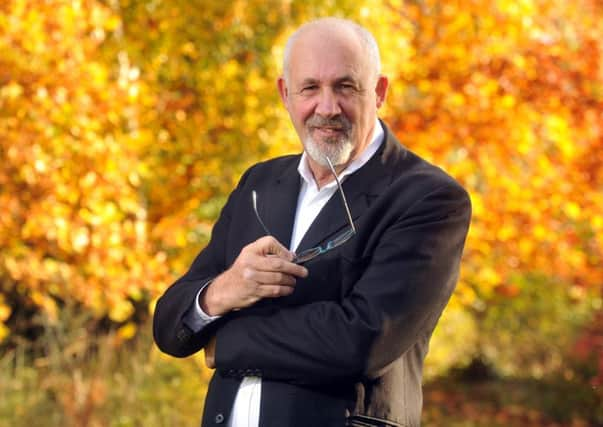Jon Trickett interview: '˜Labour needs to be ready to hit the ground running'


The 67-year-old is credited with persuading the Doncaster MP Ed Milband to see himself as a potential leader, and with encouraging him to part with the policies and rhetoric of the New Labour years. This marked the beginning of a crusade to bring about a “radical” change in the party – and in the country – which he says due to Jeremy Corbyn’s leadership is moving ever closer to fruition.
Speaking to The Yorkshire Post in his Westminster office, Mr Trickett traces the roots of this project right back to his teenage years, when, at the age of just 15 and with no qualifications, he was asked to leave his school.
Advertisement
Hide AdAdvertisement
Hide Ad“The head teacher said there was no point me going back because I wasn’t predicted to do very well in exams,” he explains.
“I suppose it’s the reflections I had at that time that made me interested in politics, because while I completely accept that I wasn’t a good school student, it didn’t seem right that young people should be condemned at that kind of age.
“The conclusion I came to was that it wasn’t simply about me... this is [about] people like me who don’t work well in the school system as it was then structured.
“[Those were] the first sort of thoughts I began to have about society, and how it works and how it needed to change. Those thoughts stayed with me all my life.”
Advertisement
Hide AdAdvertisement
Hide AdDespite the initial setback, Mr Trickett went on to complete his education and study two degrees. But he remains convinced that the school system is failing too many children and allowing “too many talents” to go to waste.
For him, the recent furore surrounding the collapse of the Wakefield City Academies Trust exemplifies everything that is wrong with current education policy. He claims that rather than treating schools as “a gilded place” – where children are supported in their transition from the family sphere to the adult world – they have become “a market, where money is traded, schools compete against each other, and where the executives are paid huge amounts of money”.
His formative experiences with the school system and a “complex series of events” during which he received support from Labour representatives led a 19-year-old Mr Trickett to join the Labour Party. It was over a decade before he ran for his first elected position, but, within five years of becoming a councillor in 1984, he was made leader of Leeds City Council.
When he took up the office, he says his home city “felt more like a Northern provincial town than a metropolitan city”. However, a drive to create a “24/7 culture” in the city centre and to market Leeds as “a great European city” led to a “dramatic” transformation. “We were doing things very differently in Leeds to what other Labour councils were doing, and you could see the city changing – the butterfly emerging from the chrysalis,” he recollects. “I wanted to try to give a fresh direction and impetus to Leeds. I wanted to establish new ways of trying to develop a city. We created 30,000 additional jobs. I was very proud.”
Advertisement
Hide AdAdvertisement
Hide AdAn opportunity to run for Parliament presented itself in the form of a by-election in 1996. Despite being a high-profile local figure by that point, Mr Trickett admits he was reluctant to put himself forward. He received calls from people “high up” in the Labour Party but in the end it was a chance encounter with a local campaigner that changed his mind. “A man who’d been active in the miners’ strike...he’d seen me on TV and asked to meet me,” Mr Trickett explains. “I said I’d come for half an hour, I ended up staying most of the night and talking right through into the early morning. He persuaded me that ‘[people] need help over here, there’s something you can do for us’.”
Within a year of arriving in Westminster he was appointed as a Parliamentary Private Secretary (PPS) to the then-Minister Peter Mandelson. He has since served as a PPS to the former Prime Minister Gordon Brown and as shadow Communities Secretary, and was recently tasked with the job of preparing Labour for government.
This new role was established in response to the “unstable” position of Theresa May’s administration, to allow Labour to “hit the ground running” should it find itself as the party in power. Mr Trickett is anxious that there should be no delay in delivering on the party’s promise of a “radical change of direction” in government – a change he has been calling for since the latter days of New Labour.
The veteran MP has long held the view that the current political system “is not working” for too many people, and while he acknowledges that the Blair-Brown years did bring some improvements, he believes the party lost touch with many traditional supporters. He says “substantial progress” toward reversing this trend was achieved under Ed Miliband, but after the 2015 election it became clear the party needed to “go further”.
Advertisement
Hide AdAdvertisement
Hide Ad“I felt the only candidate that emerged to become leader who was capable of [this] was Jeremy Corbyn. That was why I was the first MP to publicly nominate him,” he states. “There were times when people were saying to me ‘you’ve made the biggest mistake’...[but] the early General Election demonstrated that once people heard the message they warmed to Jeremy.”